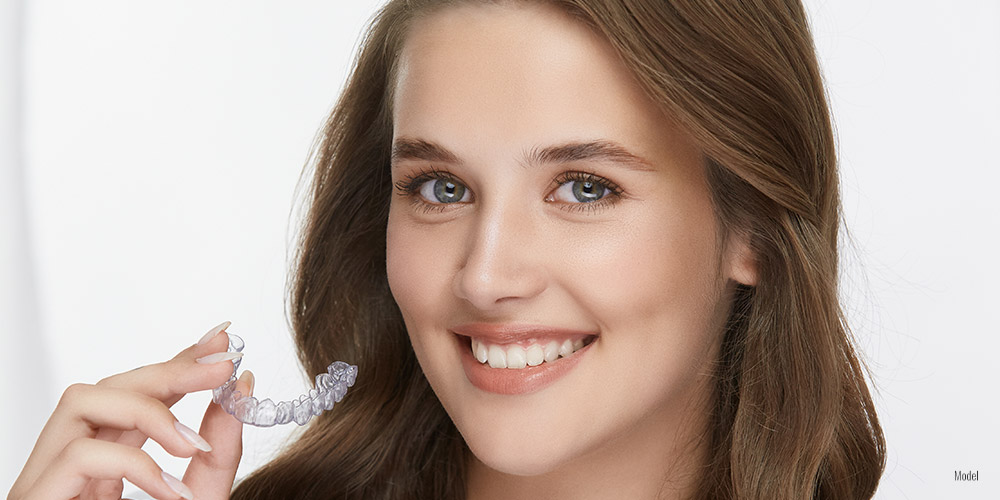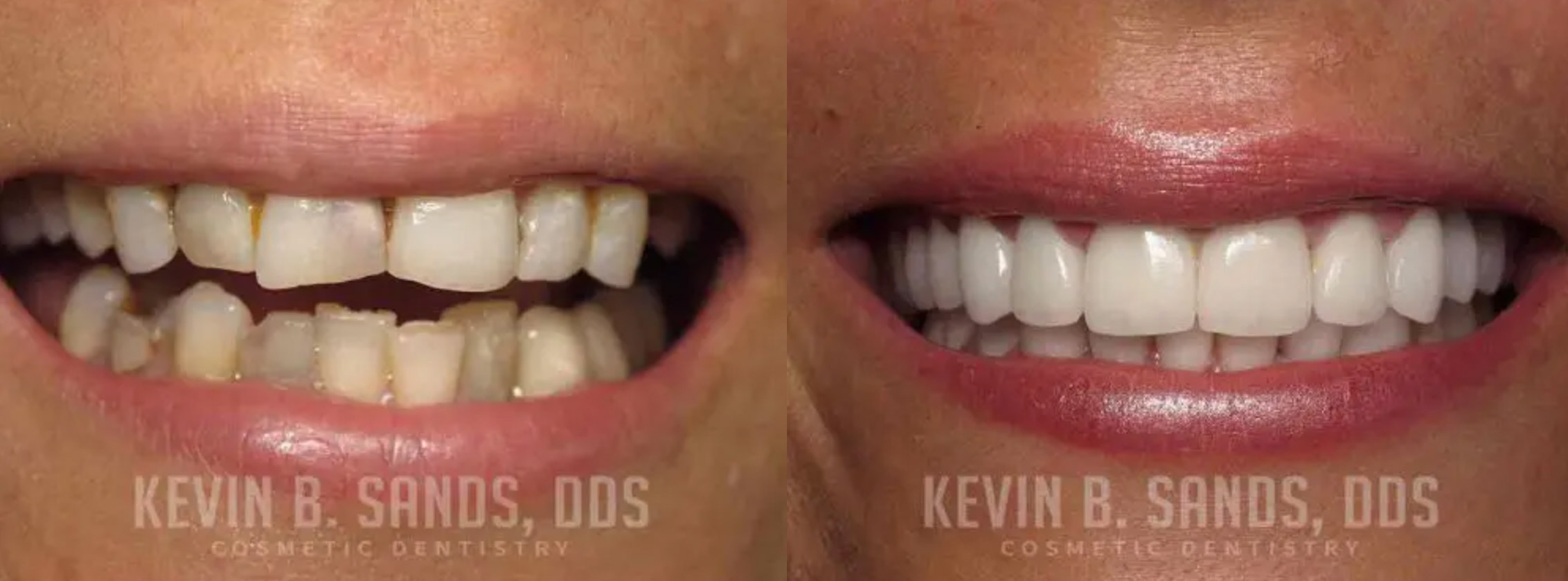
Teeth grinding (bruxism) is a common problem for many children and adults. Over time, bruxism can wear down even healthy teeth and cause dental complications like enamel loss, gum recession, and TMJ (temporomandibular joint) disorders. For patients who grind their teeth, choosing the proper orthodontic treatment can be tricky. A common question is whether Invisalign® is suitable for those who grind their teeth. In this blog, we’ll look at how teeth grinding affects orthodontic treatment with Invisalign® and why it may actually be a good option for those with bruxism.
What Is Teeth Grinding?
Bruxism is the clenching or grinding of one’s teeth and can happen while awake (awake bruxism) or asleep (sleep bruxism). Some people are unaware of their grinding habit until they start to experience symptoms like jaw pain, headaches, or worn-down teeth.
Bruxism can vary in severity, and some people grind more during times of stress or sleep disruptions. For others, it’s a chronic habit that can go on for years without being addressed. Severe cases can lead to worn, cracked, or broken teeth. Identifying teeth grinding early is the best way to minimize damage and prevent long-lasting discomfort.
Causes of Teeth Grinding
Bruxism doesn’t have one cause, and different factors can contribute to teeth grinding. Understanding the causes can help you work towards a solution and management.
Stress and Anxiety
Excessive obligations, emotional stress, and anxiety can play a serious role in teeth grinding. When under stress, the body releases excess adrenaline, which can cause muscle tension and involuntary jaw clenching.
Sleep Disorders
Sleep disorders like obstructive sleep apnea (OSA) can increase the likelihood of bruxism. When the body experiences sleep disruptions, it can cause involuntary jaw movement, which leads to grinding.
Misaligned Teeth
A misaligned bite or crooked teeth can sometimes cause bruxism as the teeth don’t fit together correctly. This misalignment can cause jaw muscle strain and, over time, can lead to grinding.
Lifestyle Factors
Excessive caffeine or alcohol intake can exacerbate teeth grinding. Stimulants can cause muscle tension, and alcohol disrupts productive sleep patterns, both of which can trigger bruxism.
Genetic Predisposition
For some people, bruxism can be hereditary. If there’s a family history of teeth grinding, the likelihood of developing the condition increases.
Can You Wear Night Guards With Invisalign®?
Many patients who grind their teeth wear a night guard to protect their teeth. Since Invisalign® aligners cover the teeth, they can sometimes serve as a night guard. However, the level of protection is different.
Using Invisalign® as a Temporary Night Guard
Invisalign® clear aligners can act as a barrier between upper and lower teeth and can provide protection from grinding during sleep. Invisalign® aligners aren’t as thick or durable as traditional night guards, but they do offer some protection for the teeth.
Invisalign® With a Night Guard
You can’t wear a standard night guard with Invisalign® aligners as the aligners occupy the space in the mouth where the night guard would go. However, your orthodontist can create a custom treatment plan, which may include alternating between night guards and Invisalign® aligners or using other methods to protect the teeth from grinding damage.
Wearing a Night Guard After Invisalign® Treatment
Once Invisalign® treatment is complete and the teeth are in alignment, patients with bruxism should use a night guard to prevent grinding until the condition has resolved. Retainers used after Invisalign® treatment can sometimes be designed with extra protection in mind for those who grind their teeth, providing alignment support and a grinding barrier.
The Impact of Teeth Grinding on Invisalign® Treatment
Bruxism can affect Invisalign® treatment in several ways, and patients who grind their teeth should be aware of how it can impact their treatment.
Excessive Wear on Aligners
Invisalign® aligners are designed to withstand daily wear, but grinding can put extra stress on the plastic. Patients with severe bruxism may find their aligners wearing down faster and may need to replace them more often.
Aligners Losing Their Shape
Excessive grinding can distort the shape of the aligners, especially if the grinding is intense. When the aligners fit poorly, they don’t provide the orthodontic forces needed to move the teeth effectively.
Treatment Adjustments
Patients who grind their teeth may need some adjustments to their Invisalign® treatment, such as more frequent aligner changes, to counter the wear. Working with an orthodontist who understands bruxism will ensure the treatment is effective.
More Check Ups With the Orthodontist
Your orthodontist may recommend more frequent check-ins to monitor the impact of bruxism on your Invisalign® treatment. If any issues arise, adjustments can be made to get treatment back on track.
Invisalign®’s Positive Impact On Teeth Grinding
Treatment with Invisalign® can actually reduce teeth grinding while providing aesthetic benefits and improved function.
Proper Tooth Alignment Relieves Jaw Tension
One of the benefits of Invisalign® is its ability to correct alignment issues and reduce jaw tension associated with bruxism. Teeth that fit more comfortably in the jaw structure allow the bite to function more harmoniously and can reduce clenching and grinding.
Invisalign® for Protection
While not as strong as traditional night guards, these clear dental aligners provide a physical barrier between the upper and lower teeth for mild-to-moderate bruxism during the straightening treatment process.
Heightened Oral Health Awareness
Patients report that wearing Invisalign® aligners makes them more aware of their oral habits, such as grinding. Since aligners need to be worn for at least 20–22 hours a day, patients may start to notice the triggers or situations that make them grind their teeth and can make adjustments to their lifestyle accordingly.
Your Cosmetic Dentist for Invisalign® in Beverly Hills, CA

If you grind your teeth, Invisalign® can still be an excellent option for straightening your smile. Dr. Kevin Sands is committed to delivering the stunning results you hope to achieve.
Explore our before and after photos to see how these advanced dental aligners can treat mild, moderate, and even some severe cases of dental misalignment. Schedule your Beverly Hills Invisalign® consultation by calling 310.273.0111 today or filling out our online contact form.